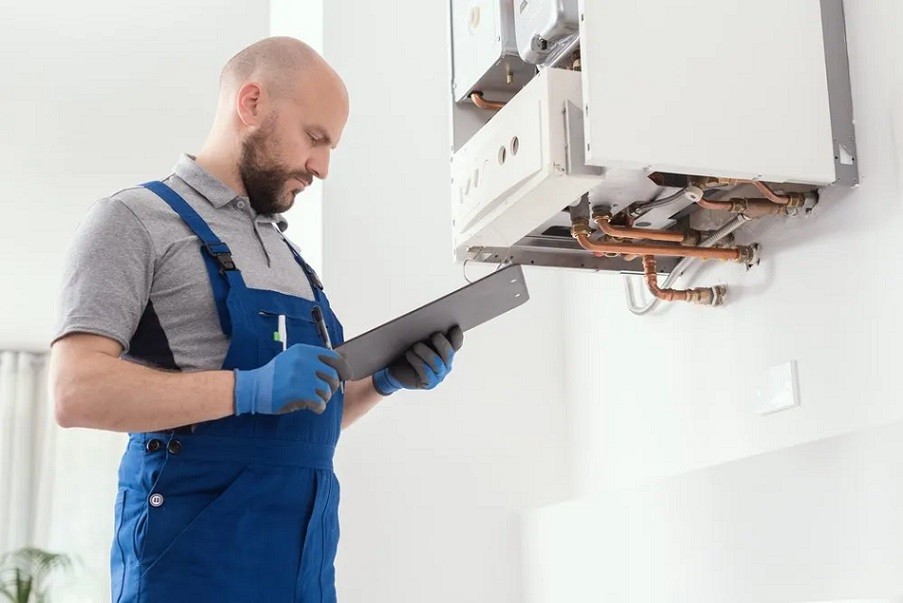Regular Inspections: Schedule annual inspections of your gas appliances by a qualified engineer to ensure they are operating safely and efficiently. This includes boilers, heaters, cookers, and any other gas-powered devices in your home.
Check for Signs of Gas Leaks: Be vigilant for signs of gas leaks, such as a hissing sound, a distinctive odor (often described as “rotten eggs”), or visible damage to gas pipes. If you suspect a gas leak, evacuate the premises immediately and contact a gas engineer or emergency services.
Ventilation: Ensure that rooms with gas appliances are adequately ventilated to prevent the buildup of carbon monoxide. Keep air vents clear and open to allow fresh air to circulate, particularly in enclosed spaces such as utility rooms and boiler cupboards.
Carbon Monoxide Alarms: Install carbon monoxide alarms in your home, particularly in areas where gas appliances are located and sleeping areas. Test the alarms regularly to ensure they are functioning correctly and replace batteries as needed.
Safe Usage: Follow manufacturer’s instructions for the safe operation of gas appliances, including proper installation, maintenance, and usage. Avoid blocking air vents or covering flues, and never use gas appliances for purposes they were not intended for (e.g., using a gas oven to heat a room).
By following these tips, you can help ensure the safety of your home and loved ones when it comes to gas appliances. Remember that gas safety is a serious matter, and it’s always better to err on the side of caution when it comes to gas-related issues. If you have any concerns about gas safety in your home, don’t hesitate to contact a qualified gas engineer for advice and assistance.



